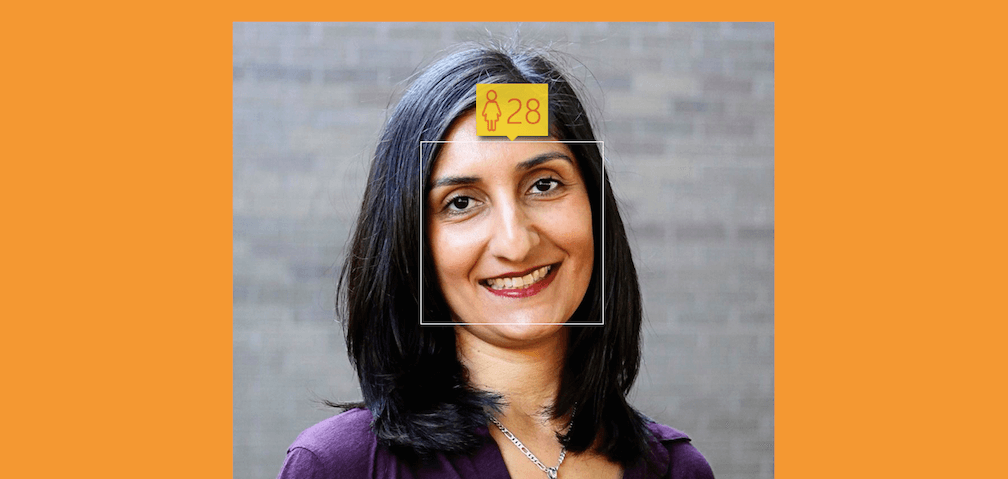The Beta app spread all over Facebook, stamping our faces as young or old. But is it safe for Gen-X women to announce their age to the world?
This article was made possible because of the generous support of DAME members. We urgently need your help to keep publishing. Will you contribute just $5 a month to support our journalism?
It didn’t take long for me to cave.
Yesterday, as I scrolled through my Facebook feed, I came across multiple friends’ photos stamped with the ages they appeared, according to Microsoft’s new age generator, “How Old Do I Look?“ For most of my Gen-X friends, it served as a virtual fountain of youth. “How Old Do I Look?” christened them 10 to 20 years younger than their actual ages. I perused and commented on a least a dozen posts, and then decided to see for myself if my outside appearance matched my much younger psychic age.
I typed my name in the box, selected one of the photos, and bam. My age and gender were branded onto my skin as if I were livestock.
Happily, the algorithm pegged me for my late 20s. But when I input a selfie from two years ago, where I’m standing in front of Buckingham Palace on a dreary, cloudy day, it aged me out of my own generation—82. Just 7 years younger than Queen Elizabeth herself.
Serves me right for getting so cocky.
In our age- and appearance-obsessed culture, where nearly everyone has an opinion about Kim Kardashian’s butt or Renee Zellweger’s eyelids, “How Old Do I Look?” went viral while still largely in its test phase. According to a blog post written by two Microsoft engineers, “we were expecting perhaps 50 users for a test but—in the end—got over 35,000 users and saw the whole thing unfold in real time.”
Initially, when the age-generator labeled me far older than even my parents, I panicked. Who can see this? Are there privacy settings? (Answers: So far, everyone and no.)
My concerns, though, go far beyond vanity. As a woman who reminisces about mixed tapes and Tretorns, I recognize the fact that I have an expiration date—an age where society, particularly the media, no longer finds me relevant. As Amy Schumer so brilliantly portrayed in a sketch with Patricia Arquette, Tina Fey, and Julia Louis-Dreyfus, about women’s sexuality in entertainment—there is an age when women’s vaginas turn into hermit crabs.
I would tell you my real age, but I can’t. More than one editor has hinted, in a not so subtle fashion, that my voice wasn’t “millennial enough” for their publications. In this industry, my age as well as my gender, in very real ways, limits the appeal and marketability of my writing, despite the fact that my articles and essays rarely reflect trends or issues pertaining to a specific age cohort. And a small part of me can’t help but wonder whether potential employers might utilize this tool when making hiring decisions.
Sadly, the viral nature of “How Old Do I Look” proves that we still inhabit an age-obsessed culture where youth and the perception of youth are far more valued than they should be. Still, some of the results of the algorithm are down right hysterical—even if the website is a time suck with the occasional unsettling result.
As for me, I’m off to play shuffleboard. Please pass me my cane.
